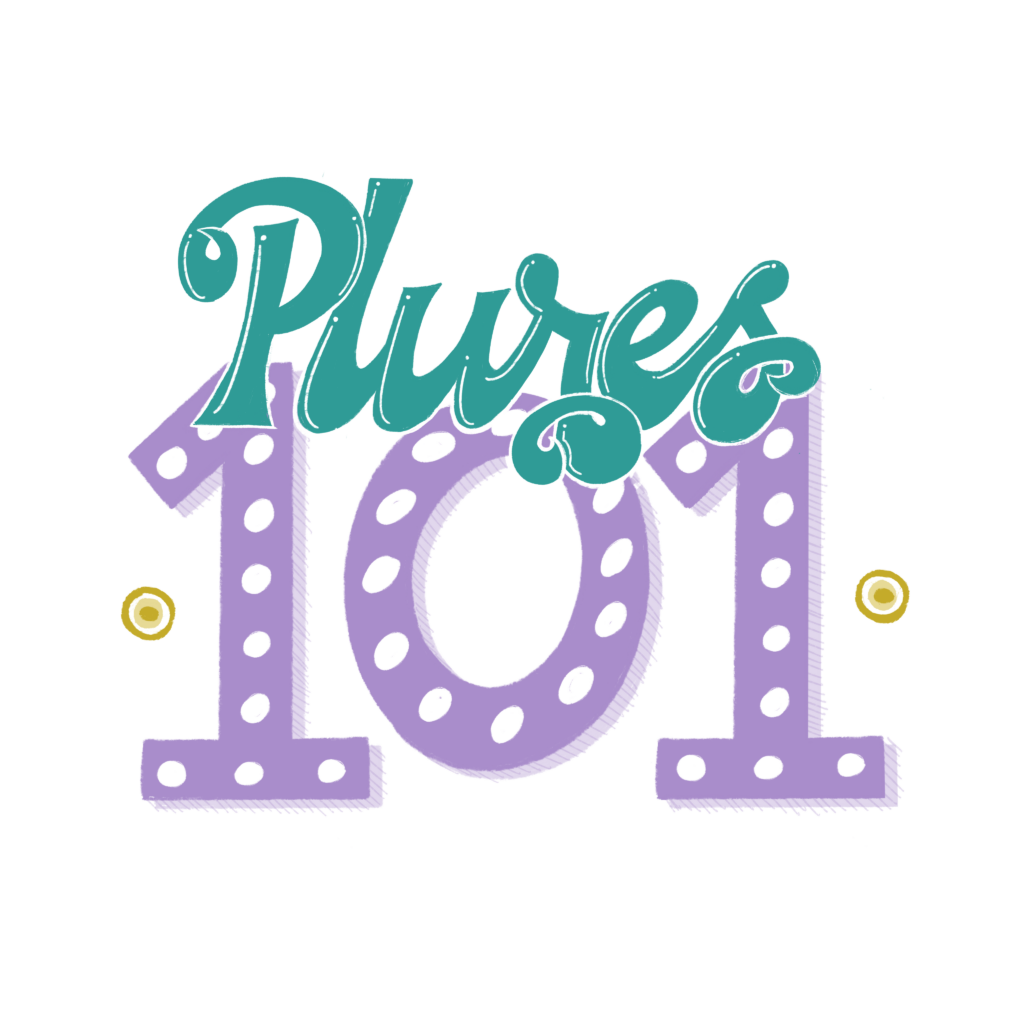This FAQ is inspired by several excellent plural FAQs out there, including LB Lee’s “Questions” comic and Amorpha’s FAQ page. For more information read Em’s Plurality for Sceptics.
Basics
What are your preferred pronouns and forms of address?
As a system? Third-person: they/them/theirs/themselves; first-person: we/us/ours/ourselves. As a group, call us Plures. We use plural grammatical constructions: “Plures are busy,” etc. Individual system members are often called “Pluresians.” We refer to ourselves as “people” or “system members”; don’t call us “alters,” “personalities,” “ego states,” “parts,” “fragments,” “personas,” or anything like that. Individuals have their own pronoun preferences; ask them what they prefer if you’re not sure.
How long do you think you’ve been plural?
As long as we can remember. If our memories are correct, we were diagnosed with MPD (as it was then called) in the late 1980s, but a loss of internal communication led the doctors to believe we’d been “cured.” We regained awareness of ourselves in our early twenties.
How big is your system?
Technically, infinite; in practice, there are about six of us who come out regularly.
How do I learn more about you as individuals?
We have a list of selected bios!
Is there someone called [Government Name] or [deadname]?
No. Nobody has either of those names here; the name on our ID is a government-recognised name that functions more like a stereotypical online handle. As for the deadname, we got rid of that in court over a decade ago.
What gender(s) are you?
Most of us are men, though we have a few women and nonbinary people here as well. We’re transmasculine and transitioned a long time ago and don’t talk about it a lot, except for articles that address the topic directly (e.g., Yavari’s “Transitioning while Plural”).
How do you sometimes say “I” and sometimes “we”?
If one of us says “I,” it refers to their individual experiences or emotions; “we” refers to the system at large (or the people present at the time). Language is slippery, and we recognise that it can be confusing.
How “out” are you?
It varies, though in practice we tell very few people about our multiplicity. We just don’t think people will understand well enough for us to talk about ourselves in detail.
How can you have people in your body that have different ages, ethnicities, species or personal histories?
Short answer: We just have.
Long answer: We have a complicated and intricate subjective “headspace,” in which people have their own histories and identities independent of the front’s. It’s also common for plural systems—even trauma-based systems—to have system members whose appearance and background are different from the front body’s.
Do you have a “host,” “core,” or anyone who identifies themselves with the body?
Yes and no. We have two original members—Hess and Richard. We’ve had some erroneous guesses over the past several years, but this is the likeliest.
Miscellaneous
Mac or PC?
Mac. Windows is dreadful.
Why does your punctuation and spelling vary from article to article?
Before we adopted a consensus style in 2024, we used to use individual headmates’ preferred punctuation and spelling conventions on each article. The consensus style uses British spelling (-our, -ise, -re, and so on), but North American punctuation (periods/full stops and commas inside quotation marks, for example). We make some spelling exceptions, such as “toward” instead of “towards” and “acknowledgment” instead of “acknowledgement.” Numbers below 100 are written as words. Jamie, our copyeditor-in-chief, insisted on the Oxford comma, over the objections of Jack and Vova. Vocabulary and usage continue to vary from person to person. During the transition period, you may still see articles written with individual spelling and punctuation standards. (Forgive us; we’re copyeditors.) Blog entries will continue to use individual spelling and punctuation standards.
